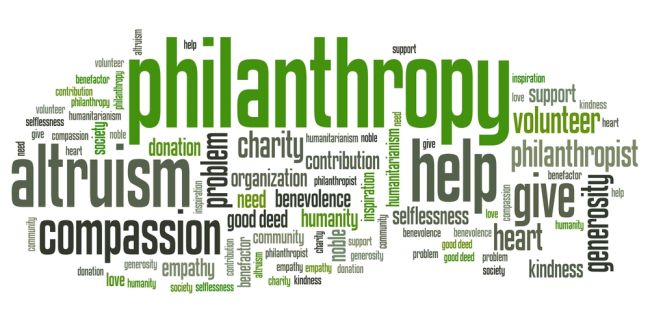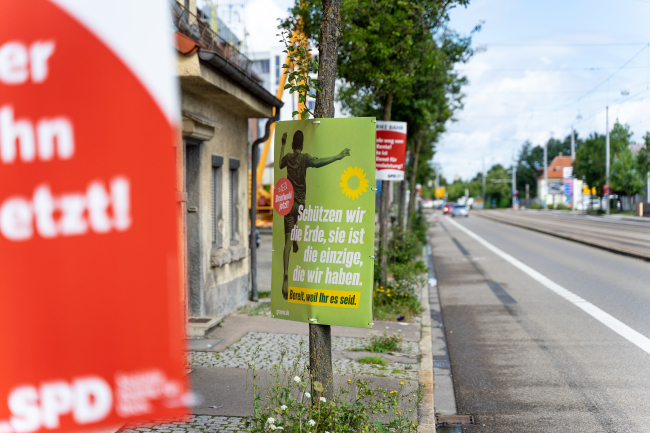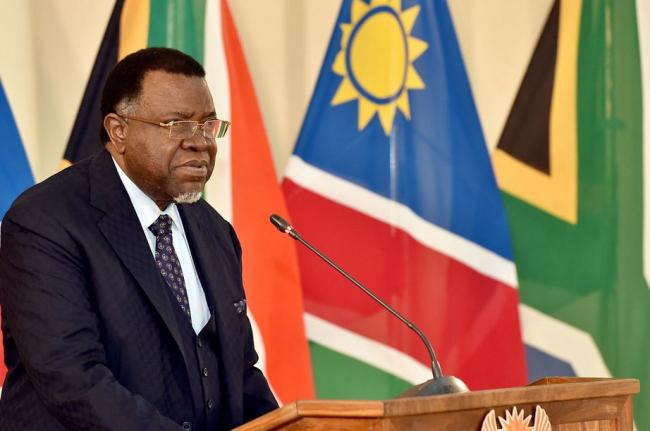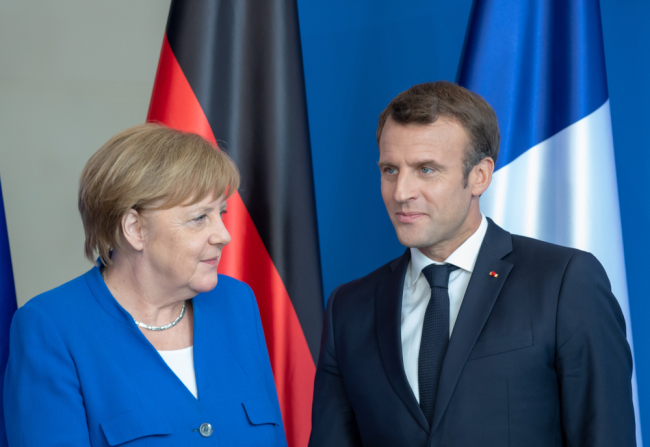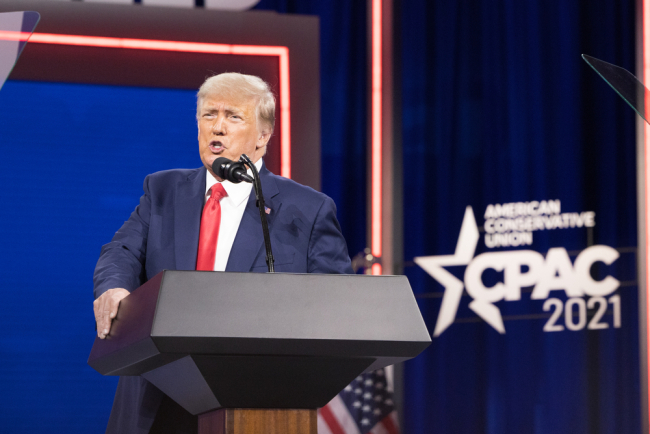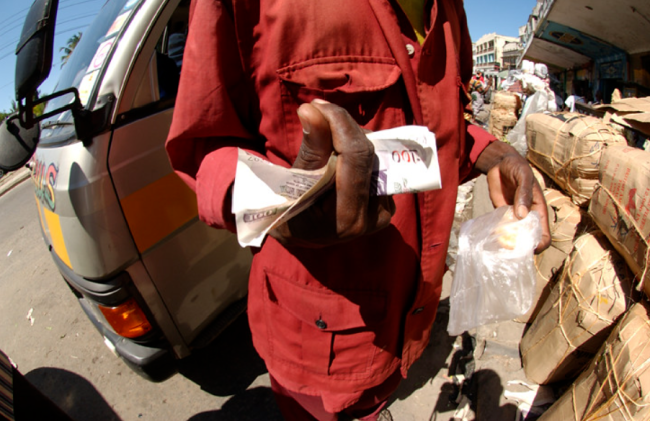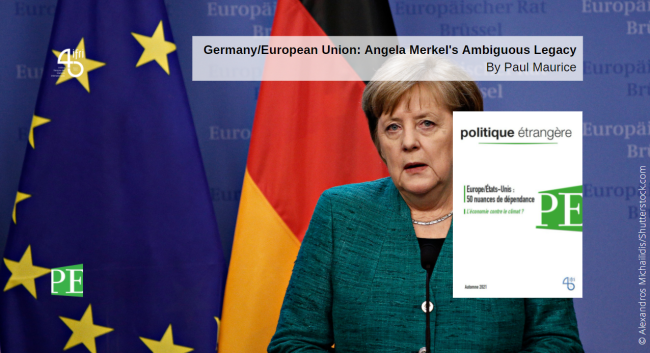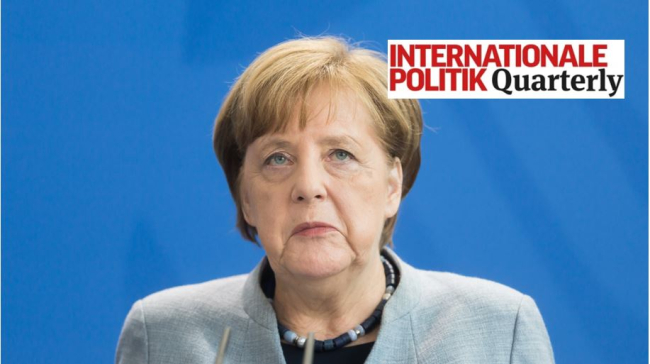Political Systems
At the end of the Cold War, the idea spread that liberal democracy was going to take over the world. In reality, authoritarian regimes have resisted, and political systems remain varied.

Philanthropy and Migration in Europe: What Role for Foundations?
The 2015 “crisis” accelerated and/or intensified the involvement of foundations (in particular those from the private sector) in the field of migration. The crisis not only created a sense of urgency, but also generated a movement of public empathy that foundations were willing to accompany and amplify. It was also seen as a challenge to Europe and its humanist values, which foundations sought to defend in accordance with their own beliefs in inclusive societies.
A Changing Germany: The Party System Tested in the 2021 German Federal Elections
The German federal elections of September 26, 2021 were marked by the departure of the outgoing chancellor, Angela Merkel, who was not seeking re-election. The scattering of the vote and the high volatility of voters have led to a redefinition of the landscape and geography of parties in Germany.
Namibia’s Fair-Weather Friends and One All-Weather Friend
The relationship between Namibia and its historical partners has evolved over the last thirty years since Namibian independence. As in many countries, Namibia has been going through transformation, influenced by the process of globalization. This created new sets of geopolitical challenges and opened up new opportunities for Namibia's small and poorly diversified economy which has relied heavily on the mining industry.
The Future of the Franco-German Tandem
At the heart of the European project, the Franco-German tandem provides impetus for further integration within the EU. However, Brussels is yet to decide which direction it wants to take, and the French and Germans still have to agree on their position with regards to economics, foreign affairs, and enlargement.

A Region of Flashpoints? Security in the Indo-Pacific
The Indo-Pacific mega-region is home to the world’s most fluid, complex, and dangerous security environment. Lingering traditional security flashpoints (Taiwan Strait, North Korea, territorial disputes) are exacerbated by the rise of China and the US–China great power competition.
Trump and the Republican Party: electoral defeat, ideological victory?
During Donald Trump’s four-year term, many new Republican candidates have been elected to Congress. Often backed by the former president from the GOP’s primaries, they were chosen for their devotion towards him and their support for his policies : moral conservatism and laissez-faire attitudes towards fiscal and environmental issues are old Republican tenets taken over by Trump, while nativist and economic nationalism (based on anti-immigration and protectionist policies respectively), as well as the portrayal of White people without college degree as an oppressed minority are fresh precepts brought forward by the former populist President.
Corruption in Kenya. Understanding a Multifaceted Phenomenon
In Kenya, corruption results from a confusion of public and private interests that is specific to the neo-patrimonial logic in place since British colonization. The strong moral and political ethnicity that characterizes the country fuels an ambiguous relationship between the population and the elite.
Germany/European Union: Angela Merkel’s Ambiguous Legacy
Angela Merkel is ending her fourth term as German Chancellor. Although she has made a number of statements demonstrating her commitment to the European project, her record in this area nevertheless appears to be mixed.
From Friends to Partners? The Changing Nature of Sino-Tanzanian Relations
Since the post-colonial period, China and Tanzania have maintained a close diplomatic relationship. This note offers a subtle analysis of the changing relationship between both countries since the 1960s. It assesses the economic ties and studies the collaboration of both countries in the agriculture, health, education and security sectors.
Advancing Europe: Green for Danger?
In France, the prospect of the Greens entering the German government this fall raises both hopes and fears.
South Africa and the Arab Spring: opportunities to match diplomacy goals and strategies
This paper highlights how the Arab Spring magnified a two-dimensional gap in South Africa’s foreign policy. First that South Africa does not have a vision which reconciles demands for achieving the goals of protecting human rights, sovereignty, and multilateralism; second, that its strategies do not meet set goals. The paper then provides tentative explanations to this gap. It ends by elaborating what in the “African Awakening” and in the midst of the Arab Spring are opportunities for South Africa to overcome this gap.
Jewish Activism in the United States: Is J Street a Passing Phenomenon?
Created in the Fall of 2008, the J Street movement seeks to represent those in the U.S. Jewish community who would like Washington to be more active in supporting a lasting peace in the Middle-East.
The Recent Blossoming in Relations between China and Madagascar
The question of the Chinese presence in Madagascar is very accurate. It is an opportunity for us to portray the sino-madagarscan relations.
The Economic Opportunities and Constraints of Green Growth: The Case of South Korea
Linking Business and Migration Policy in the USA
On Friday, the 13th of January, 2012, the Center for Migrations and Citizenship welcomed Jesus 'Chuy' Garcia - Cook County Commissioner, Chicago (USA) - as a speaker of its international conference "Business and the State: Migration Policies, Diversity and Integration".
Libya: Old or New Picture? Risks of political uncertainty for the gas and oil business
Libya has an opportunity to get back on track. The end of embargoes and sanctions after the conclusion of the “February Revolution” is favoring a fast production growth.
Is Turkey an Economic Exception?
This roundtable dealt with the specificities of Turkey"s economy, which is completing major economic achievements in particularly difficult times. François Faure analyzed the risks of an economic backlash following the European crisis; Turkey appears indeed in a weaker position than in 2008 and difficult times could lie ahead. Esen Çağlar pointed out how Turkey progressed from a low-technology to medium-technology economy, thus ensuring considerable levels of growth. Yet, a renewed reform agenda is needed if Turkey wants to maintain its economic performance. Deniz Ünal addressed the issue of economic governance under the AKP and the consistency of their economic policy agenda. In any case, Europe will most certainly play a role in the country"s economic future. According to Rémi Bourgeot, the Middle East cannot provide an alternative to European markets even if it offers interesting opportunities for the Turkish South East. Turkey"s future growth will also depend on its capacity to impose itself as a corridor between Europe and its neighbours energy resources.
Innovation Policy Challenges for Japan: An Open and Global Strategy
Productivity is increasingly important in the Japanese economy as an aging and shrinking population is expected to constrain labor input. Thus, the creation of innovation is critical for realizing economic growth and maintaining Japan's international competitiveness. Specifically, emerging countries such as China and South Korea are quickly catching up on Japan's level of technological prowess in electronics and other high-tech industries. For that reason, continual investment in R&D and provision of products and services that are competitive in the global market are crucial for Japan's international competitiveness.
U.S.-Moroccan Relations: How Special?
U.S.-Moroccan ties have sometimes been described as a "special relationship." This paper explores the bilateral relationship to investigate how special it really is.
Toward the End of Force Projection? II. Operational Responses and Political Perspectives
For more than a decade, US defense circles have been concerned about the emergence of capabilities and strategies, which, as they spread, risk imperiling the United States" position in the world by their ability to disrupt or prevent force projection operations. Though most of the literature on such “anti-access” strategies focuses on the military aspects of the threat, this Focus stratégique - the second and last part of a two-part study - adopts a different perspective.
Support independent French research
Ifri, a foundation recognized as being of public utility, relies largely on private donors – companies and individuals – to guarantee its sustainability and intellectual independence. Through their funding, donors help maintain the Institute's position among the world's leading think tanks. By benefiting from an internationally recognized network and expertise, donors refine their understanding of geopolitical risk and its consequences on global politics and the economy. In 2025, Ifri supports more than 80 French and foreign companies and organizations.







